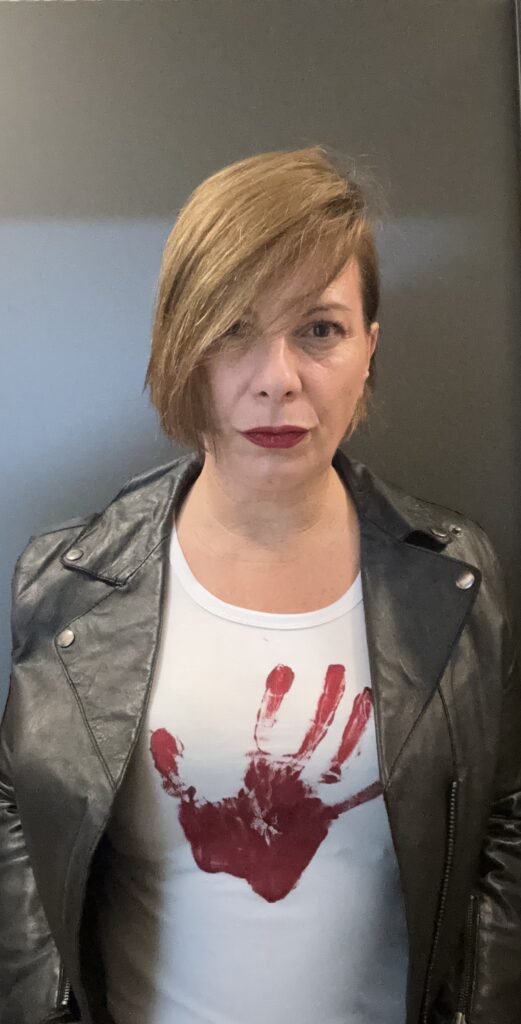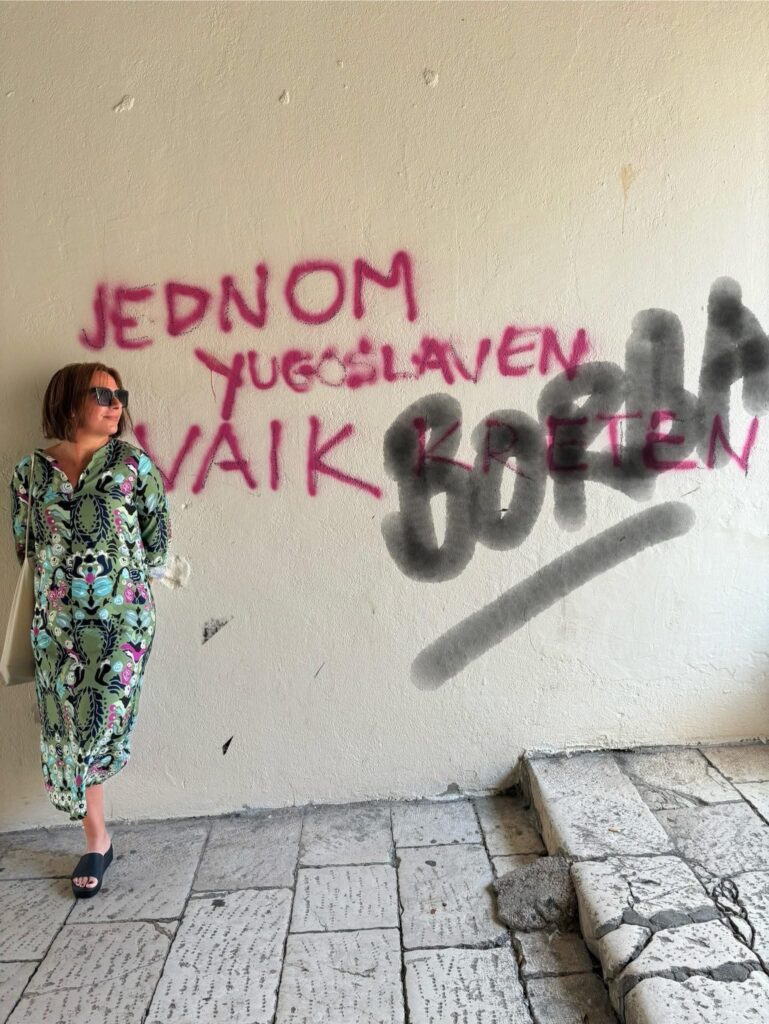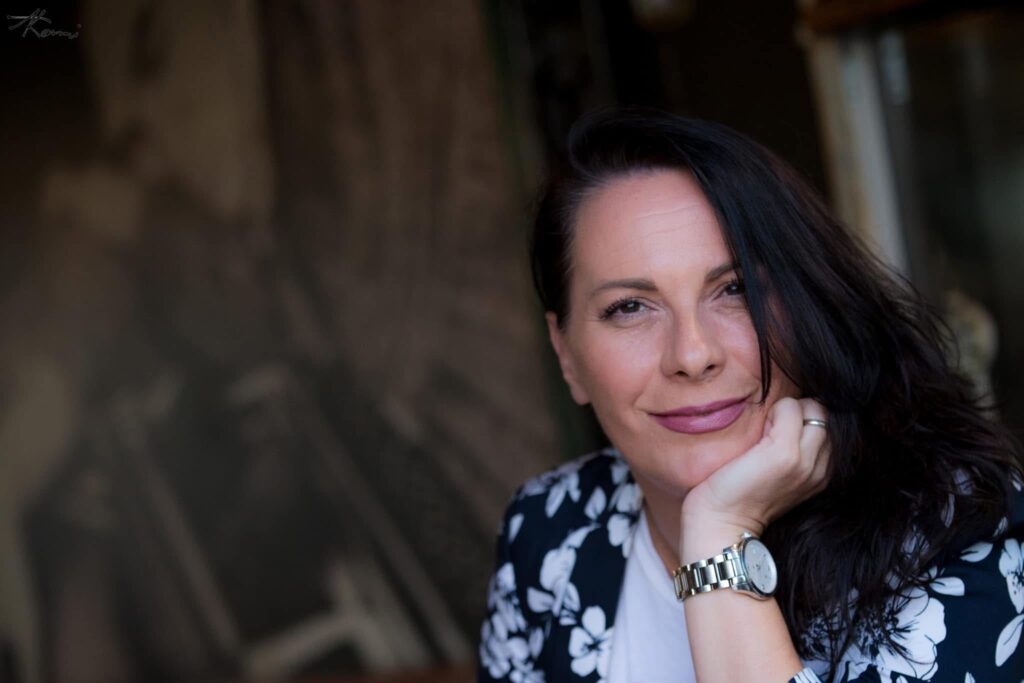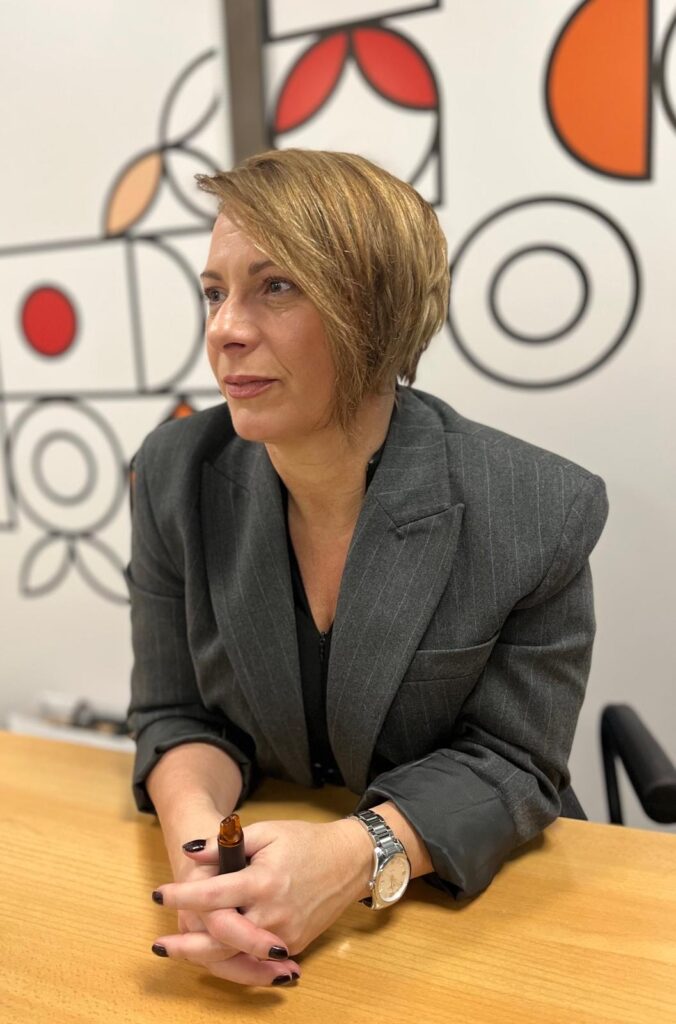Citizens rise as truth breaks through media silence
 Ana Lalić Hegediš is a journalist whose unwavering commitment to truth has made her a defining voice in Serbian media. Known for her courageous reporting and refusal to bow to censorship, she became a symbol of resistance when she was arrested during the pandemic for exposing failings in the healthcare system—an act that resonated far beyond Serbia’s borders. In this interview, she reflects on the tragedy that broke the media blockade, the fight for accountability, and the role of free journalism in reclaiming justice and dignity for the people. This introduction highlights Ana’s fearless professional journey while setting the stage for the interview’s themes of truth, justice, and resistance.
Ana Lalić Hegediš is a journalist whose unwavering commitment to truth has made her a defining voice in Serbian media. Known for her courageous reporting and refusal to bow to censorship, she became a symbol of resistance when she was arrested during the pandemic for exposing failings in the healthcare system—an act that resonated far beyond Serbia’s borders. In this interview, she reflects on the tragedy that broke the media blockade, the fight for accountability, and the role of free journalism in reclaiming justice and dignity for the people. This introduction highlights Ana’s fearless professional journey while setting the stage for the interview’s themes of truth, justice, and resistance.
The collapse of the canopy at the railway station in Novi Sad has triggered a wave of discontent and raised numerous questions about government responsibility. It has also sparked a full-blown media war waged by pro-regime outlets against the truth. How do you assess the media’s response to this tragic event?
The reaction of the pro-regime media has been shameful, unscrupulous, and utterly inhumane. Unlike professional media, who from the very first day – with the utmost respect for the families of the victims – raised the crucial question of who is responsible for the deaths of 15 people and the serious injuries of two more, pro-regime media have focused on covering up and spinning the narrative. While professional media insist on answers to this and other questions raised by the tragedy, pro-regime mouthpieces are attempting to remove the story from public focus. However, the collapse of the canopy has remained the main topic for 45 days because the only news in Serbia today is, and must be, the Novi Sad tragedy and the demand for accountability.
 Unfortunately, this is not the first incident with casualties caused by the government and systemic corruption. Let us recall the helicopter crash, the Obrenovac floods, the toll booth accident, and many others. What links all these tragic events?
Unfortunately, this is not the first incident with casualties caused by the government and systemic corruption. Let us recall the helicopter crash, the Obrenovac floods, the toll booth accident, and many others. What links all these tragic events?
Incompetence, theft, arrogance, spin, lies, and evasion of responsibility. Their incompetence and disorganisation in Obrenovac cost Serbia 65 lives. The helicopter crash, which should never have taken off in extremely poor weather conditions, was used to shift the blame onto Major Omer Mehić, an experienced pilot with an impeccable career, whom the authorities later called a “drunkard.” Seven people, including one baby, lost their lives because officials wanted to exploit the “successful rescue” of the sick baby from Novi Pazar for propaganda purposes and photo opportunities. Proof that lives were abused and lost for the sake of scoring political points lies in the premature news report broadcast on RTS that evening, which stated that the “helicopter had landed successfully” and that “numerous officials were present at Nikola Tesla Airport to greet the sick baby.”
For the same reason, the Novi Sad railway station was opened prematurely, before all works were completed, to serve as a backdrop for the political campaign of Aleksandar Vučić, Goran Vesić, Miloš Vučević, and other officials, who ceremoniously opened it three times in front of the cameras of their propaganda media outlets.
The fight for justice, for the dignity of every citizen, for the imprisonment of the guilty, and freedom for the people must not stop
Do free media today, after the Novi Sad tragedy, have a greater impact on the public?
The reactions are now different because the Novi Sad tragedy deeply shook the entire region, including SNS supporters. It was impossible to hide hundreds of tonnes of concrete, steel, and the bodies of the victims, no matter how powerful the government’s propaganda machinery might be. No morning show on Happy, Pink, Kurir, Informer, or any other pro-regime media outlet could convincingly justify this crime. No one failed to imagine that their own child could have ended up under that rubble.
The Novi Sad tragedy broke through the media blockade primarily thanks to social media, which cannot be censored. The truth and facts travel faster and farther, reaching even those parts of Serbia where citizens have been systematically stupefied, deceived, and lied to for the past 12 years.
 How has the lack of media freedom contributed to the current state of society?
How has the lack of media freedom contributed to the current state of society?
Drastically. Almost two-thirds of Serbia is subjected to daily anaesthetisation and one-sided, mostly inaccurate reporting. People outside Novi Sad, Belgrade, and a few other larger cities are in media darkness, where some obscure human and moral caricatures peddle absurd news stories created in Nemanjina 11. They are systematically convinced that they live in Eldorado while being fed tales about poor Germans who allegedly “cannot afford soap” and “share one sausage among four children.”
Every time Aleksandar Vučić addresses the public through these media, he humiliates and underestimates his own citizens, treating them as mentally impaired people from whom he expects joy over cheap luncheon meat and wartime reserves of peas and rice. If his goal was to create a stupefied, uneducated, uninformed, and impoverished population, then he has succeeded – precisely through silencing free speech and suppressing media freedoms. Sadly, that was his only goal.
Elections for new REM members have been announced. Does this indicate preparations for early elections, and has the government been forced into this due to the evident public dissatisfaction, which is taking on the characteristics of a serious social revolt?
The unrest is already here. This is no longer a matter of the government or the opposition but of the citizens. Through numerous demonstrations and acts of civil disobedience, the citizens of Serbia are sending a clear message: enough is enough. The opposition is there to articulate through institutions what the people are voicing on the streets, in blocked universities, and in schools.
Through numerous demonstrations and acts of civil disobedience, the citizens of Serbia are sending a clear message: enough is enough
What lessons should society, on the one hand, and the media, on the other, learn from this tragedy?
The lesson is clear: the fight for justice, for the dignity of every citizen, for the imprisonment of the guilty, and freedom for the people must not stop. The media are there to report on that struggle because their fundamental duty is to work in the public interest and serve as a corrective force in society.
Can a society be free without media freedom, and can this be achieved in Serbia soon?
It cannot. However, with more than 40 universities blocked and a growing number of people on the streets and at protests, it seems we are on the right path to reclaim our freedom. Freedom is taken – not given!
